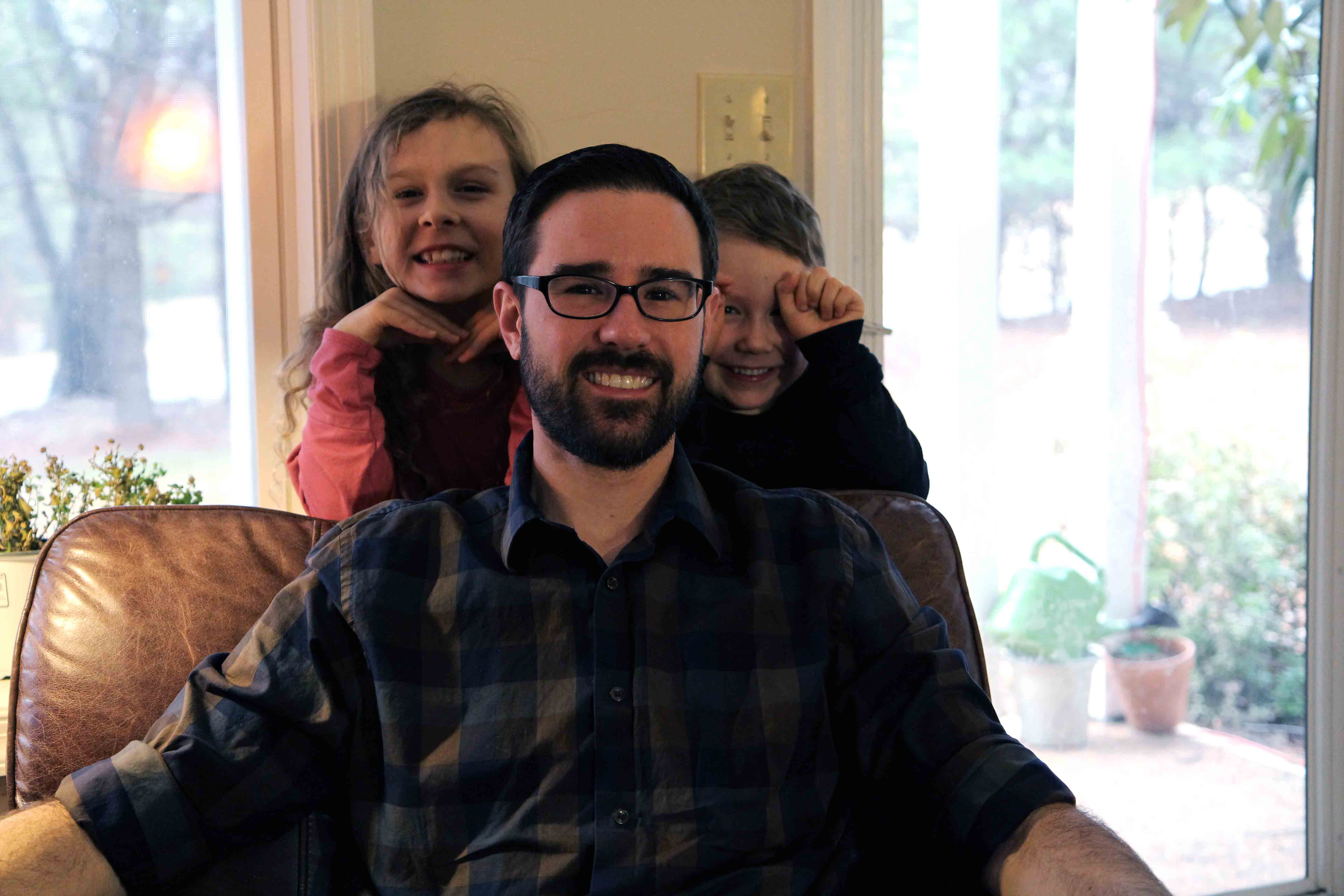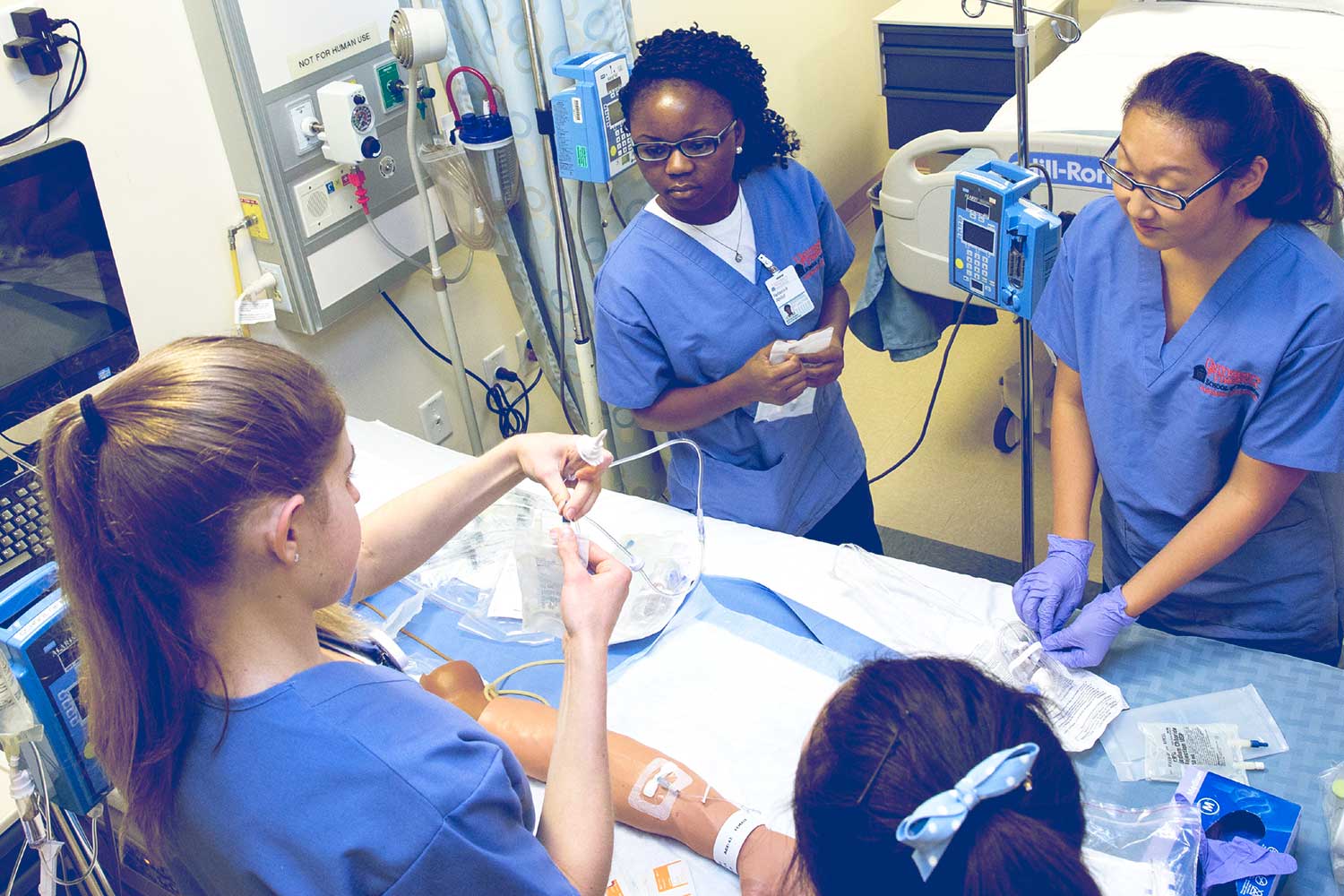As the University of Virginia’s first clinical nurse leader master’s program celebrates its 10th year, a second transformative gift from Washington, D.C. philanthropists Joanne and Bill Conway will continue to diversify the program’s student body through scholarship support while also fortifying its administrative and teaching base.
“The Conways are forging real, meaningful change in nursing,” School of Nursing Dean Dorrie K. Fontaine said, “because they’re bringing even more people to nursing who look like, talk like, and understand the patients they serve. Their steadfast support means our school’s doors are open even wider than before, and this purposeful, thoughtful inclusion and diversity will ultimately benefit us all.”
The Conway’s new $5 million gift – which begins in 2018 and extends a gift bestowed in 2013 – furthers the couple’s support of UVA’s fast-track-to-nursing program for non-nurses entering the profession. Over five years, it will provide scholarships to more than 110 new nurses who will bring a range of skills and experience from outside the profession to the bedside, with a particular focus on students from underrepresented and minority groups, including men.

“Joanne and I are proud to continue to support the School of Nursing at UVA,” Bill Conway said. “Our first gift worked out so well, and we are so proud of our existing scholars that we decided to make another gift, this time to support a fast track to nursing.”
The first program of its kind in Virginia, ranked No. 2 in the nation by U.S. News & World Report, the certified nurse leader program provides a path into nursing for those with at least a bachelor’s degree in another field. During the first of two years, clinical nurse leader students attend intensive academic courses, then, in their second year, begin their clinical rotations under the one-to-one mentorship of a veteran nurse preceptor.
With more than 1,000 clinical hours of experience, CNLs graduate fully eligible to become entry-level nurses, though they tend to rise quickly into leadership and management positions due to their level of maturity and the experience they bring.
Nearly all CNL students come to nursing later in life, many after lengthy and distinguished careers in other fields. Many have families and are used to a steady paycheck, but as students, don’t have access to undergraduate scholarships, cannot serve as teaching assistants, and don’t have time for even part-time jobs. Even as UVA’s program costs roughly half to a third as much as those at other top nursing schools, some CNL students graduate with between $40,000 and $50,000 in debt burden.

Ryan McFadden – here with daughter Sunny, 7, and son Atticus, 5 – was, among other things, a stay-at-home dad prior to enrolling in UVA’s fast-track-to-nursing program with the help of a Conway Scholarship. (Contributed photo)
“As a father of two preschool-aged children, the stressors of changing careers and attending graduate school full-time were greatly reduced knowing that I wouldn’t be faced with absolutely crippling debt upon graduation,” said UVA pediatric nurse Ryan McFadden, who graduated from the program in 2015. “Though I still had to take out federal loans, my debt is half of what it would have been had I not received the Conway Scholarship.”
The CNL program receives nearly three applications for every available spot, and currently includes more than a quarter of students who hail from underrepresented and minority groups. Additionally, the program enjoys strong participation from men, who make up nearly 19 percent of the program’s student body, a figure that eclipses the national proportion of nurses who are male (9 percent).
Media Contact
Article Information
January 18, 2017
/content/5-million-gift-will-relieve-financial-burdens-career-changers-entering-nursing

